Top Ten Physicists
The Top Ten
1 Isaac Newton
 Sir Isaac Newton PRS was an English physicist and mathematician who is widely recognised as one of the most influential scientists of all time and a key figure in the scientific revolution.
Sir Isaac Newton PRS was an English physicist and mathematician who is widely recognised as one of the most influential scientists of all time and a key figure in the scientific revolution.
 Sir Isaac Newton PRS was an English physicist and mathematician who is widely recognised as one of the most influential scientists of all time and a key figure in the scientific revolution.
Sir Isaac Newton PRS was an English physicist and mathematician who is widely recognised as one of the most influential scientists of all time and a key figure in the scientific revolution. He was a God for his time.
2 Albert Einstein
 Albert Einstein (14 March 1879 – 18 April 1955) was a German-born theoretical physicist, widely acknowledged to be one of the greatest and most influential physicists of all time. Einstein is best known for developing the theory of relativity, but he also made important contributions to the development of the theory of quantum mechanics. Relativity and quantum mechanics are together the two pillars of modern physics. His mass–energy equivalence formula E = mc2, which arises from relativity theory, has been dubbed "the world's most famous equation". His work is also known for its influence on the philosophy of science. He received the 1921 Nobel Prize in Physics "for his services to theoretical ...read more.
Albert Einstein (14 March 1879 – 18 April 1955) was a German-born theoretical physicist, widely acknowledged to be one of the greatest and most influential physicists of all time. Einstein is best known for developing the theory of relativity, but he also made important contributions to the development of the theory of quantum mechanics. Relativity and quantum mechanics are together the two pillars of modern physics. His mass–energy equivalence formula E = mc2, which arises from relativity theory, has been dubbed "the world's most famous equation". His work is also known for its influence on the philosophy of science. He received the 1921 Nobel Prize in Physics "for his services to theoretical ...read more.
 Albert Einstein (14 March 1879 – 18 April 1955) was a German-born theoretical physicist, widely acknowledged to be one of the greatest and most influential physicists of all time. Einstein is best known for developing the theory of relativity, but he also made important contributions to the development of the theory of quantum mechanics. Relativity and quantum mechanics are together the two pillars of modern physics. His mass–energy equivalence formula E = mc2, which arises from relativity theory, has been dubbed "the world's most famous equation". His work is also known for its influence on the philosophy of science. He received the 1921 Nobel Prize in Physics "for his services to theoretical ...read more.
Albert Einstein (14 March 1879 – 18 April 1955) was a German-born theoretical physicist, widely acknowledged to be one of the greatest and most influential physicists of all time. Einstein is best known for developing the theory of relativity, but he also made important contributions to the development of the theory of quantum mechanics. Relativity and quantum mechanics are together the two pillars of modern physics. His mass–energy equivalence formula E = mc2, which arises from relativity theory, has been dubbed "the world's most famous equation". His work is also known for its influence on the philosophy of science. He received the 1921 Nobel Prize in Physics "for his services to theoretical ...read more. He should be the top one,because his theory overshadow Newton's.
Universe changing man
3 Galileo Galilei
 Galileo Galilei, was an Italian astronomer, physicist, engineer, philosopher, and mathematician who played a major role in the scientific revolution during the Renaissance.
Galileo Galilei, was an Italian astronomer, physicist, engineer, philosopher, and mathematician who played a major role in the scientific revolution during the Renaissance.
 Galileo Galilei, was an Italian astronomer, physicist, engineer, philosopher, and mathematician who played a major role in the scientific revolution during the Renaissance.
Galileo Galilei, was an Italian astronomer, physicist, engineer, philosopher, and mathematician who played a major role in the scientific revolution during the Renaissance. The father of cosmology
4 Richard Feynman
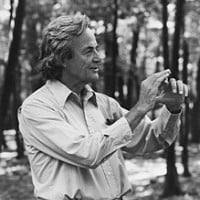 Richard Phillips Feynman was an American theoretical physicist known for his work in the path integral formulation of quantum mechanics, the theory of quantum electrodynamics, and the physics of the superfluidity of supercooled liquid helium, as well as in particle physics for which he proposed the ...read more.
Richard Phillips Feynman was an American theoretical physicist known for his work in the path integral formulation of quantum mechanics, the theory of quantum electrodynamics, and the physics of the superfluidity of supercooled liquid helium, as well as in particle physics for which he proposed the ...read more.
 Richard Phillips Feynman was an American theoretical physicist known for his work in the path integral formulation of quantum mechanics, the theory of quantum electrodynamics, and the physics of the superfluidity of supercooled liquid helium, as well as in particle physics for which he proposed the ...read more.
Richard Phillips Feynman was an American theoretical physicist known for his work in the path integral formulation of quantum mechanics, the theory of quantum electrodynamics, and the physics of the superfluidity of supercooled liquid helium, as well as in particle physics for which he proposed the ...read more.
5 Max Planck
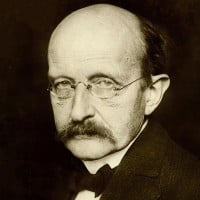 Max Karl Ernst Ludwig Planck was a German quantum physicist who was born on April 23, 1858 in Kiel, Germany. He is best known for winning a Nobel prize on the field of physics in 1918 and he published his own well known book called treatise on thermodynamics. His accomplishments was for being elected into the royal society by foreign membership in 1926 and was being the Copley medal in 1928 and was... read more
Max Karl Ernst Ludwig Planck was a German quantum physicist who was born on April 23, 1858 in Kiel, Germany. He is best known for winning a Nobel prize on the field of physics in 1918 and he published his own well known book called treatise on thermodynamics. His accomplishments was for being elected into the royal society by foreign membership in 1926 and was being the Copley medal in 1928 and was... read more
 Max Karl Ernst Ludwig Planck was a German quantum physicist who was born on April 23, 1858 in Kiel, Germany. He is best known for winning a Nobel prize on the field of physics in 1918 and he published his own well known book called treatise on thermodynamics. His accomplishments was for being elected into the royal society by foreign membership in 1926 and was being the Copley medal in 1928 and was... read more
Max Karl Ernst Ludwig Planck was a German quantum physicist who was born on April 23, 1858 in Kiel, Germany. He is best known for winning a Nobel prize on the field of physics in 1918 and he published his own well known book called treatise on thermodynamics. His accomplishments was for being elected into the royal society by foreign membership in 1926 and was being the Copley medal in 1928 and was... read more
6 Werner Heisenberg
 Werner Karl Heisenberg was a German theoretical physicist and one of the key pioneers of quantum mechanics.
Werner Karl Heisenberg was a German theoretical physicist and one of the key pioneers of quantum mechanics.
 Werner Karl Heisenberg was a German theoretical physicist and one of the key pioneers of quantum mechanics.
Werner Karl Heisenberg was a German theoretical physicist and one of the key pioneers of quantum mechanics. My science fair project is his uncertainty principle but I can't think an way that will fit my evidence that it exist
7 Paul Dirac
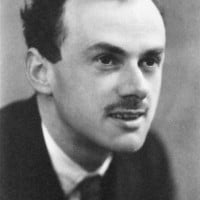

8 James Maxwell


9 Michael Faraday
 Michael Faraday was an English scientist who contributed to the study of electromagnetism and electrochemistry.
He is known for inventing the first rubber balloon and the first faraday cage.
Michael Faraday was an English scientist who contributed to the study of electromagnetism and electrochemistry.
He is known for inventing the first rubber balloon and the first faraday cage.
 Michael Faraday was an English scientist who contributed to the study of electromagnetism and electrochemistry.
He is known for inventing the first rubber balloon and the first faraday cage.
Michael Faraday was an English scientist who contributed to the study of electromagnetism and electrochemistry.
He is known for inventing the first rubber balloon and the first faraday cage. The electric boy
10 Stephen Hawking
 Stephen William Hawking (January 8, 1942 - March 14, 2018) was an English theoretical physicist, cosmologist, author and Director of Research at the Centre for Theoretical Cosmology within the University of Cambridge. His most famous research was on the theory of Black Holes.
Stephen William Hawking (January 8, 1942 - March 14, 2018) was an English theoretical physicist, cosmologist, author and Director of Research at the Centre for Theoretical Cosmology within the University of Cambridge. His most famous research was on the theory of Black Holes.
 Stephen William Hawking (January 8, 1942 - March 14, 2018) was an English theoretical physicist, cosmologist, author and Director of Research at the Centre for Theoretical Cosmology within the University of Cambridge. His most famous research was on the theory of Black Holes.
Stephen William Hawking (January 8, 1942 - March 14, 2018) was an English theoretical physicist, cosmologist, author and Director of Research at the Centre for Theoretical Cosmology within the University of Cambridge. His most famous research was on the theory of Black Holes.The Contenders
11 Niels Bohr
 Niels Henrik David Bohr was a Danish physicist who made foundational contributions to understanding atomic structure and quantum theory, for which he received the Nobel Prize in Physics in 1922. Bohr was also a philosopher and a promoter of scientific research.
Niels Henrik David Bohr was a Danish physicist who made foundational contributions to understanding atomic structure and quantum theory, for which he received the Nobel Prize in Physics in 1922. Bohr was also a philosopher and a promoter of scientific research.
 Niels Henrik David Bohr was a Danish physicist who made foundational contributions to understanding atomic structure and quantum theory, for which he received the Nobel Prize in Physics in 1922. Bohr was also a philosopher and a promoter of scientific research.
Niels Henrik David Bohr was a Danish physicist who made foundational contributions to understanding atomic structure and quantum theory, for which he received the Nobel Prize in Physics in 1922. Bohr was also a philosopher and a promoter of scientific research.
12 Erwin Schrodinger
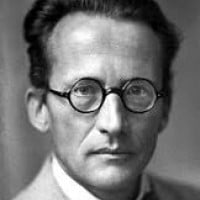 Erwin Rudolf Josef Alexander Schrödinger, sometimes written as Erwin Schrodinger or Erwin Schroedinger, was a Nobel Prize-winning Austrian physicist who developed a number of fundamental results in the field of quantum theory, which formed the basis of wave mechanics: he formulated the wave equation and revealed the identity of his development of the formalism and matrix mechanics.
Erwin Rudolf Josef Alexander Schrödinger, sometimes written as Erwin Schrodinger or Erwin Schroedinger, was a Nobel Prize-winning Austrian physicist who developed a number of fundamental results in the field of quantum theory, which formed the basis of wave mechanics: he formulated the wave equation and revealed the identity of his development of the formalism and matrix mechanics.
 Erwin Rudolf Josef Alexander Schrödinger, sometimes written as Erwin Schrodinger or Erwin Schroedinger, was a Nobel Prize-winning Austrian physicist who developed a number of fundamental results in the field of quantum theory, which formed the basis of wave mechanics: he formulated the wave equation and revealed the identity of his development of the formalism and matrix mechanics.
Erwin Rudolf Josef Alexander Schrödinger, sometimes written as Erwin Schrodinger or Erwin Schroedinger, was a Nobel Prize-winning Austrian physicist who developed a number of fundamental results in the field of quantum theory, which formed the basis of wave mechanics: he formulated the wave equation and revealed the identity of his development of the formalism and matrix mechanics.
13 Archimedes
 Archimedes of Syracuse was an Ancient Greek mathematician, physicist, engineer, inventor, and astronomer.
Archimedes of Syracuse was an Ancient Greek mathematician, physicist, engineer, inventor, and astronomer.
 Archimedes of Syracuse was an Ancient Greek mathematician, physicist, engineer, inventor, and astronomer.
Archimedes of Syracuse was an Ancient Greek mathematician, physicist, engineer, inventor, and astronomer.
14 Ernest Rutherford
 Ernest Rutherford, 1st Baron Rutherford of Nelson, was a New Zealand physicist who became known as the father of nuclear physics.
Ernest Rutherford, 1st Baron Rutherford of Nelson, was a New Zealand physicist who became known as the father of nuclear physics.
 Ernest Rutherford, 1st Baron Rutherford of Nelson, was a New Zealand physicist who became known as the father of nuclear physics.
Ernest Rutherford, 1st Baron Rutherford of Nelson, was a New Zealand physicist who became known as the father of nuclear physics.
15 Edwin Hubble


16 Michio Kaku


17 Leonard Sussking
18 Hendrik Lorentz


19 Andre Marie Ampere
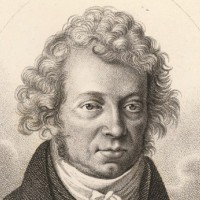

20 Amedeo Avogadro
21 Antoine Henri Becquerel
22 Lev Landau
23 James Chadwick
24 Juan Martín Maldacena
25 Roger Penrose
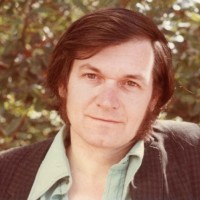

BAdd New Item